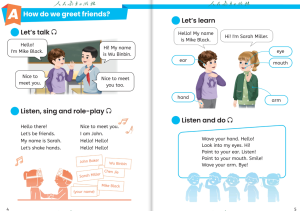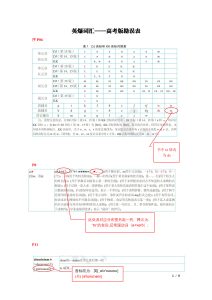绪论
2025年高考已落下帷幕,新高考Ⅰ卷整份试卷的超纲比例高达20.2%,这一数据是否令您感到震惊与意外?
高考结束后,英语试卷中频频出现的“超纲词汇”再次成为师生热议的焦点。
绝大多数的考生不会相信高考真的会那么多超纲词汇,那就让我们深度解析这份考卷的词汇吧。
特别说明(比对依据):凡未列入考试大纲均视为超纲单词,包括衍生词。
![图片[1]|2025年新高考Ⅰ卷词汇分析报告|词频统计](https://englishbomb-1301027636.cos.ap-nanjing.myqcloud.com/2025/06/2025年试卷分布.png)
新课标全国Ⅰ卷 听力部分
统计内容:听力部分的试题及听力素材原文,剔除人名、地名、语气词等单词,听力部分单词总量为1214个单词,还原名词的单复数、动词的时态,剔除重复单词后净单词量为416个,比对高考大纲词汇表,超纲单词为36个,超纲比例为8.7%;再比对母语国家词频前5000词,超出词频表的单词量为16个,超表比例为3.8%,超出部分均为考纲词汇的变形词。
超纲词列表:
sign, homeowner, grace, documentary, decent, unpack, missing, pursue, suburb, crowded, definitely, sometime, celebrity, favorable, critical, educational, entertaining, stuff, visiting, opportunity, enhance, community, interaction, mountainside, learning, nursing, exactly, locate, duration, flooding, creative, controllable, changing, waterline, rising, underwater.
![图片[2]|2025年新高考Ⅰ卷词汇分析报告|词频统计](https://englishbomb-1301027636.cos.ap-nanjing.myqcloud.com/2025/06/听力部分超纲比例.png)
![图片[3]|2025年新高考Ⅰ卷词汇分析报告|词频统计](https://englishbomb-1301027636.cos.ap-nanjing.myqcloud.com/2025/06/听力部分单词词频分布.png)
新课标全国Ⅰ卷 笔试部分
据完全统计,2025年新高考Ⅰ卷笔试部分总单词量为2784个,为了更客观的反映超纲单词的比例,同样剔除试卷中出现的人名、地名、国名等专有名词,还原动词时态、第三人称单数、复数形式、形容词的比较级等,再去除重复单词,最后笔试部分剩余923个单词,未列至考试大纲中的超纲词共有200个,标注有中文的单词有16个,但3个中文注释的单词为大纲单词,实际标注有中文释义的超纲词有13个,此超纲词共187个,占比20.2%。
超纲单词共187个,列表如下:
mode, renewable, issue, redesign, expressway, involve, player, writing, boiling, global, health-related, opponent, moving, decarbonize, energy-related, hydrocarbon, long-term, ammonia, easily, staggering, demonstrate, safely, community, decent, environmental, researcher, milligram, finding, microplastic, bottled, forth, inspired, backyard, greening, automobile, responsible, transportation, greenhouse, breakdown, lightweight, solution, shipping, synthetic, sector, aviation, option, sustainable, recycled, efficient, existing, electrify, lighter, mechanical, estimated, fortunately, comparatively, regarding, consumption, affordable, cowboy, astrict, heartbreak, interpret, necessity, simply, persuasive, assignment, narrative, creative, workshop, specification, broaden, yearbook, beginning, grader, writer, fictional, poorly, limited, misunderstood, mixed, teaching, learning, improvement, mobility, rethink, elsewhere, famously, joumalist, destruction, proposed, replacement, completely, increasing, rapidly, invest, differently, frequently, campaigner, livable, cultural, diversity, needy, infer, boost, largely, ineffective, source, volcanic, seabird, significantly, crucially, sample, additionally, polystyrene, polyethylene, polypropylene, previously, vinyl, chloride, exposure, increasingly, originally, intake, upgrade, drinking, quote, define, effectiveness, hardness, cooling, frequency, illustrate, recycling, severity, overuse, polluted, unsung, pick-me-up, exactly, grab, genuine, mood, daylight, beloved, item, supposedly, particularly, online, additional, repost, happily, display, stuff, complicated, tolerable, warning, investigate, recognized, encounter, giveaway, belongings, anticipate, feature, artwork, originate, philosophy, according, AI, context, initiate, minimalist, conceptual, expressionism, personality, reveal, strategy, placement, following, generate, snack, unexpectedly, indoor, actually, clearly, unhappy。
在这200个单词中,有97个可以通过词根和词缀的变化从大纲词汇中派生出来,另有17个是由大纲词汇合成的。这部分超纲词汇占比为(97+17)/187×100%=61.5%,剩下的72个(38.5%)为纯超纲词汇。在这72个纯超纲词汇中,有49个位于词频表前5000位(68.1%),12个分布在词频表的5001~10000位,两者合计占比达到84.7%。所有单词中有816个落在词频表前5000位(88.3%)。
![图片[4]|2025年新高考Ⅰ卷词汇分析报告|词频统计](https://englishbomb-1301027636.cos.ap-nanjing.myqcloud.com/2025/06/纯超纲单词词频分布-1024x615.png)
综合听力和笔试部分的词汇,剔除重复单词后的总单词量为1103个,则总超纲比例为(36+187)/1103×100%=20.2%。
![图片[5]|2025年新高考Ⅰ卷词汇分析报告|词频统计](https://englishbomb-1301027636.cos.ap-nanjing.myqcloud.com/2025/06/整卷超纲比例-1024x615.png)
![图片[6]|2025年新高考Ⅰ卷词汇分析报告|词频统计](https://englishbomb-1301027636.cos.ap-nanjing.myqcloud.com/2025/06/整卷单词词频分布.png)
看了上面的超纲词表,肯定有同学有疑惑:像writing不是write的现在分词吗,怎么会是超纲词呢?在这里解释一下,write在大纲里是动词,大纲也未收录writing这个单词,而在考卷中“Why is writing important?”,在这里是名词(n.写作;作品;书写;著作;[法] 笔迹),文中是“写作”的意思。Writing这个单词在母语国家的词频表中排位第1533位,属高频词,但绝大多数的词汇书,甚至课本都忽略了这个单词,没有给出单独释义。如果没看过这个单词释义的,只能通过write这个动词或上下文猜其语义,理解必然有些偏差,而看过其完整释义的可能就可以确切的知道其意思。其他看是简单的单词也类似。
超纲单词达1/5,这绝对是绝大多数考生不敢相信的数据,但这就是血淋淋的现实!如果只是死磕考纲和课本的单词,把他们全背熟,最多也只能拿到60%~80%的分数,这不是危言耸听,也不是你不够努力,是你的方向没选对。
正如语言学家Laufer教授所言:二语读者需要掌握文章中95%的词汇,才能对文章获得大致的理解;若要实现充分理解,则需掌握文章中98%及以上的词汇。一句子里只需有一两个生词,就可能会造成理解偏差甚至不理解,诱导你选到错误的答案。
至于网络上那些关于资本运作的广告,例如“不用背单词,掌握几百个核心词就够了”,若仅为了提高记单词效率,以60至70分为目标,或许可以考虑。但若想取得高分,这种做法显然不切实际。整份高考试卷总词汇量为1103个单词。即便广告中提到的几百个单词全部出现在试卷中,也无法全面覆盖所有考察内容,更遑论有效应对考试了。因此,所谓“不用记单词”或者“几百个核心词”的说法是不成立的,听听就好了。若连基本单词都无法理解,意味着字都看不懂,又如何完成考试题目呢?因此,要想在考试中取得优异成绩,最基本的要求就是要理解每一个词汇,再扩展到句子和文章!
超纲词汇实际上是命题者精心设计的“区分度密码”。一方面,教育部明确要求高考英语命题以教材为本,词汇量基准约3500词;另一方面,高考作为选拔性考试(注意:不是成绩合格考试),要有区分度,必然通过增加难度来实现分层。
命题专家们坦言:”高考必须适度超越课本,否则无法区分高水平人才”,课本词汇的局限性已成定局。要有区分度,这就是高考的本质。
英语科目增加难度的一个重要方式就是增加超纲词汇量,其次是语法和长句。超纲词汇是必需的,只有多与少的问题。
词汇掌握程度与文章的理解深度成正比,生词越少,理解得越透彻,最终都将体现在分数上。如果把高考试卷都翻译成中文,正常的小学生都可以拿140+。
通过对高考真题的分析,恰恰揭示了大部分超纲词汇的本质——它们多数并非真正的“超纲”,而是通过构词法衍生的可推测词汇(如2025年全国I卷真题中的documentary、opportunity等),或是在考纲词汇基础上添加表义前缀/后缀的变形词(如interaction、celebrity)。大部分超纲词汇属于3500词范围内的正常组合,因此学习词根词缀构词非常重要。更值得关注的是,部分被师生视为“超纲”的词汇(如pursue、community),实为雅思等国际考试的基础词汇,反映着新高考与国际语言能力标准的接轨趋势。同时,通过对高考词汇的词频分析可以看出:绝大部分词汇也遵循高频词汇的正态分布。命题实践也显示,真题会对原文超纲词进行替换(如将peer改为look)以适配考纲,而且每篇阅读材料都源自母语国家的报刊杂志。这种张力恰恰要求我们跳出”是否超纲”的二元争论,转而聚焦词汇能力的本质——即通过构词法逻辑(如documentary揭示的派生规律)、跨学科语料积累(如物理appliance、社会学discrimination等),以及词汇前瞻性学习(如母语国家的高频词汇),将所谓的”超纲焦虑”转化为词汇战略升级的契机。
通过以上的分析,我们可以得出以下两个结论:
一、词根和词缀的掌握非常重要,不仅可以帮助快速记忆和牢固记住单词,还能解决大部分超纲词汇的问题。通过解构这些单词,可以提高对超纲词汇的猜词能力,从而较为准确地理解其意思。
二、在纯超纲词汇中,词频的意义也非常重要。大部分超纲词汇出现在高频词汇中。英语的总单词量约为80万个,常用的英语单词有2.0~2.5万个,高考大纲词汇量约为3600个。结合高考中的高频词汇分布情况,我们可以清楚地看到,大部分的超纲词汇来自于高频词汇,绝大部分的高考词汇(88.3%)也是高频词汇。对于时间异常紧张的高中生来说,优先记忆高频词汇是最优选择,不要盲目地乱背单词(有些单词是低频词),费时、费力、时效低。
最后,愿这句话能与君共勉:
“Vocabulary is the cornerstone of a language.”
(单词是一门语言的基石)
听力附件:
2025年高考英语新课标Ⅰ卷听力音频
音频发音为美音,而绝大部分教材音频资料为英音,平时需做适应性训练。
Text 1 【旅客申报行李丢失及航空公司处理流程】
1. What will the man do next?
A. Unpack his suitcase.
B. Board a flight.
C. Fill out a form.
原文
M: Excuse me, I just arrived on the flight from Melbourne, and my suitcase is missing.
W: We’re very sorry, sir. Could you put down your information in this form? We’ll do everything we can to find your suitcase.
M: Okay.
Text 2 讨论毕业后计划
2. What does Sarah plan to do after graduation?
A. Do volunteer work.
B. Pursue a higher degree.
C. Run the family business.
原文
M: Have you talked over your future plan with your parents, Sarah?
W: Well, my parents would like me to do my master’s after graduation. But I’m thinking of volunteering as a social worker for a year.
M: Good for you.
Text 3 【讨论搬家意向及郊区看房计划】
3. What are the speakers talking about?
A. Buying a car.
B. Moving house.
C. Fixing the window.
原文
W: We really need to move, Steve. So many cars go by every day and no sun comes through the windows.
M: Yeah, this house is kind of old. What do you have in mind?
W: Maybe we should have a look in the suburbs.
Text 4 初次滑雪体验及感受
4. What does the woman think of the ski area?
A. It’s a bit crowded.
B. It has poor snow.
C. It’s too far away.
原文
M: Do you often ski here?
W: No, this is my first time.
M: So how do you like it so far?
W: The snow is brilliant. It would be better if there were fewer people.
Text 5 指路与目的地确认
W: Now we’ve crossed the stone bridge, turn right again. Look! Here’s the Art Center. The Grand Theatre is two blocks away.
M: Nearly there. We won’t be late then.
Text 6 交通违章处理(学校区域超速)
6. What did the woman do?
A. She went over the speed limit.
B. She parked in a school zone.
C. She drove through a red light.
A. At 2:00 pm.
B. At 2:30 pm.
C. At 3:30 pm.
原文
M: Miss, I’ll need to see your driver’s license.
W: Was I doing something wrong?
M: You’re driving in a school zone around the time school lets out. The speed limit is 15 miles an hour, and you were going 35.
W: (7)But it’s only 2:10 pm. The students aren’t dismissed until 3:30.
M: Today is Wednesday. Students are dismissed an hour and a half earlier on Wednesdays.
W: Oh, no, you’re right. I just forgot that.
Text 7 偶遇熟人并邀请聚餐
8. What is the relationship between the speakers?
A. Fellow workers.
B. Former schoolmates.
C. Family relatives.
9. Who will Grace have dinner with?
A. Fiona.
B. Jennifer.
C. David.
10. What is Kevin going to do next?
A. Buy a drink.
B. Play basketball.
C. Greet a friend.
原文
M: Hi, Grace. Haven’t seen you for some time!
W: Oh, Kevin. Nice to see you. Are you also here for dinner?
M: Yes. My cousin Fiona is in town, and this is her favorite steakhouse. You met her last year, right?
W: Yes, at Jennifer’s wedding.
M: Right. Look, are you here alone? Would you like to join us?
W: That’s very nice of you, but I’m meeting David and some other friends for dinner. You remember David from Class Two?
M: Of course. He was the captain of our school’s basketball team. I haven’t seen him since graduation.
W: He worked abroad for 3 years and has just come back.
M: Well, I’ll go and say a quick hello. We definitely should get together sometime and have a drink.
Text 8 探讨电视节目的娱乐性和教育性
11. What does the woman say about news programs?
A. They are replaced by documentaries.
B. They have been reduced in number.
C. They focus on the life of celebrities.
12. What is the man’s attitude toward reality shows?
A. Favorable.
B. Critical.
C. Uncertain.
13. What does the woman expect TV programs to be?
A. Educational.
B. Diverse.
C. Entertaining.
原文
W: There’s nothing decent to watch these days on TV.
M: Nothing decent? There’s tons of stuff.
W: They’ve cut down on the number of news programs, and the number of documentaries. All have been replaced by these stupid reality shows and game shows, you know.
M: Well, they often make me laugh. People want to watch that kind of thing. It’s good, you know. As long as there’s a balance, there’s a bit of this, a bit of that.
W: Should we be giving people what they want to watch? (13)Or should we be, you know, trying to educate them?
M: Well, TV is there for entertainment. If you want an education, you go to university or college or something, don’t you?
W: No. I really don’t think so.
Text 9 学校服务项目介绍(家校和社区互动)
14.Who is Cathy?
A. A school teacher.
B. A radio host.
C. A government official.
15.What can the visiting adults do in the school?
A. Give speeches.
B. Observe classes.
C.Organize activities.
16.How can the students benefit from the school program?
A. Earn extra credits.
B. Find job opportunities.
C. Learn about adults’ life.
17. What is the goal of the school program?
A. To improve student-teacher relationship.
B. To promote the idea of work-life balance.
C. To enhance school-community interaction.
原文
W: Welcome to Education Update. This is Kathy. We have Robert Hall from Mountainside High School with us today. Hello, Mr. Hall. Could you tell us about the service program in your school?
M: Okay. It goes like this. On certain days each month, adults from the neighborhood sit in class with the students and see what’s going on in the school.
W: That’s interesting. What else can they do?
M: They can also take adult courses in the evenings for both fun and serious learning.
W: What about the students? What can they do in the program?
M: Well, they can change places with adults and go working on a farm or in a factory or taking care of the housework.
W: Good. This helps them better understand the lives of their parents and know more about their neighborhood.
M: Yes. Students have a chance to work in hospitals, nursing homes, libraries, and even in government offices.
W: So the school is not only part of the student’s lives, but also part of the neighborhood.
M: That’s exactly what our service program is for.
W: Great. Thank you, Mr. Hall.
Text 10 通过艺术项目传播气候变化信息
18. Where is the speaker’s city located?
A. By the lake.
B. On the coast.
C. In the valley.
19. What do the numbers on the signs stand for?
A. The duration of flooding.
B. The rise in air temperature.
C. The height above sea level.
20. What does the success of the project indicate?
A. Art can make a difference.
B. The homeowners are creative.
C. Climate change is controllable.
原文
M: Good evening. Tonight, I’ll continue to share how we can use art to spread the word about the changing climate. In our day-to-day lives, climate change can be hard to see, but some places will feel the changes sooner than others. The city I live in is very flat and close to the waterline. And rising sea levels are already creating floods. So I decided to do something to make it impossible to ignore. I started an art project called Underwater Homeowners Association and painted numbers onto thousands of large signs. Each number showed how high someone’s house was above sea level. A one would mean that if the sea level rose one foot, the building would flood. I gave the signs to homeowners who put them in their yards. Kids painted more signs and put them near their schools and along busy roads. The project has already had a real-world effect. The people who put the signs in their yards created a real homeowners association to address climate change in their communities.












暂无评论内容